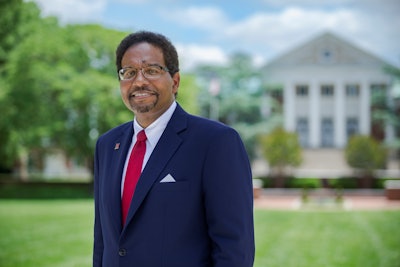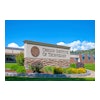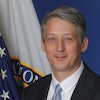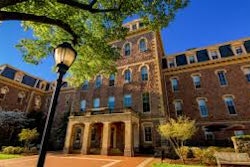The University of Maryland recently assembled a group of Black student leaders, representing about 30 student organizations, to help advise university leaders on how to set an “anti-racist agenda,” announced Dr. Darryll Pines, the university’s president.
“The pursuit of excellence and a supportive, respectful community require determined, cooperative and ceaseless work,” Pines wrote in an email to the campus community. “We will build on the work we have already begun.”
 Dr. Darryll Pines
Dr. Darryll PinesStudents have had monthly virtual meetings with administrators since May.
“It kind of feels like – for the first time – to be heard,” said senior Nadia Owusu, co-founder of Black Terps Matter and vice president of external affairs for the Student Success Leadership Council. She sees the collaboration as an opportunity to “put a name and a face to our stories.”
In higher education, too often, university leaders “do as they believe the students would want” without their direct involvement, she added. To meet with the university president and other administrators as often as they do has been “a very different experience.”
Together, students and university leaders will discuss ways to increase the number of Black faculty and staff, invest in initiatives to support Black students, increase minority enrollment – particularly from local communities like Prince George’s County and Baltimore City – and honor the legacy of Richard Collins III, a Black lieutenant and student at Bowie State University who was killed by a former student while visiting the university in 2017.
The goal is to “open doors of communication that lead to ongoing collaboration,” said Dr. Georgina Dodge, University of Maryland vice president for diversity and inclusion. “We want to be an inclusive university. We know that we cannot have excellence without diversity, and we know that in order to recruit and retain diversity we need to be inclusive.”
“Some of the concerns I heard [from students] were concerns I had as a student back in the Stone Age,” she added. “…That has fueled our determination to make progress.”
Already, Black student leaders have devised a list of 25 demands. Those demands were sent out as a Google form to the student body – so action items could be ranked in order of importance to students – and ultimately submitted to the university president, Owusu said.
For her, it’s crucial that the university focus on Black student safety, develop a racial incident hotline and mandate racial bias training for all faculty, staff and students.
“I believe that you could hold people accountable better if you’ve given them all the knowledge and understanding possible,” Owusu said. “And one of the best ways is to make people unlearn the stereotypes and the falsehoods that have been amplified outside our UMD community.”
Dr. Patty Perillo, vice president for student affairs, emphasized that involving student leaders in University of Maryland’s agenda-setting process is a part of what it means to be an educational institution.
“We are committed to developing students as global citizens,” she said. “I think that when students learn that if they speak up and speak their truth and present issues and can affect change, then, when they graduate from this university, they know they can do that wherever they are.”
Plus, resisting authority is a part of “healthy development,” she added. “We want to cultivate that. What we want to do is help young people to develop their own voices, and the ways that you do that is to invite the voice at the table.”
And in a campus context, she sees students as “powerful partners” and “co-creators.”
“This work is happening on colleges all over the country,” she said. “But I think part of the difference, part of what we’re doing here at Maryland, is that we don’t see student activists as adversaries. We see them as contributors, and we want to be in relationship with them. We don’t want to work against them.”
As a senior nearing graduation in the spring, Owusu wants to see systemic change come out of these ongoing meetings so future Black students can benefit.
She hopes “the topics and the issues and the demands that we bring up have timelines and actually come to fruition,” she said.
Like Black alumni before her, she’s afraid her calls for action will disappear when she leaves campus, that the institutional memory of her work will be lost. But she’s hopeful that this partnership between administrators and Black student leaders will create lasting accountability and transparency.
“I think that the University of Maryland can really be a model for a lot of universities when it comes to collaborating to actually make change,” she said. “We’re coming from different generations, we’re going through different things, so that collaboration is key.”
Sara Weissman can be reached at [email protected].


















